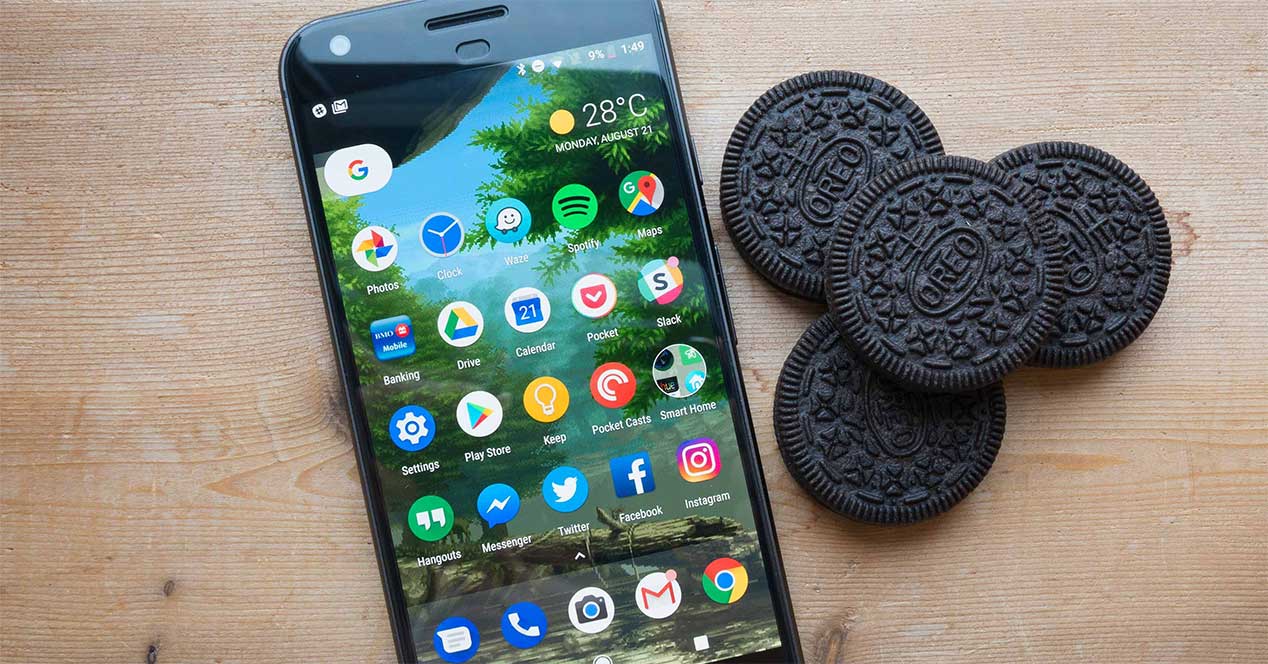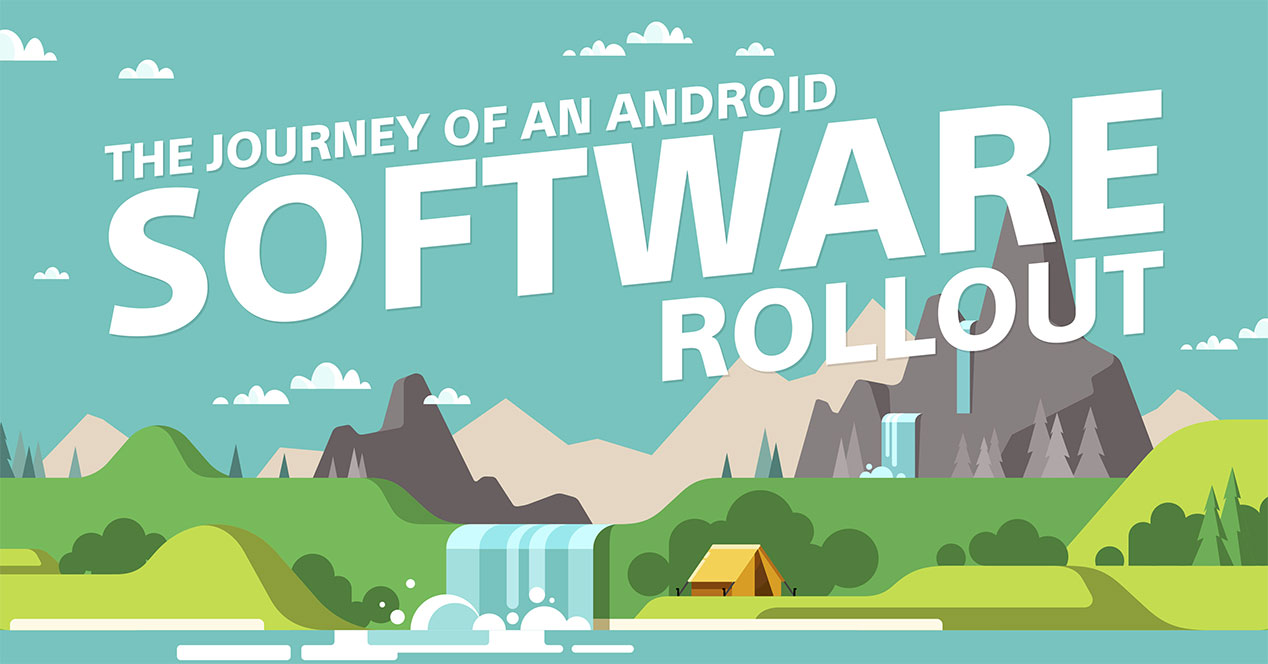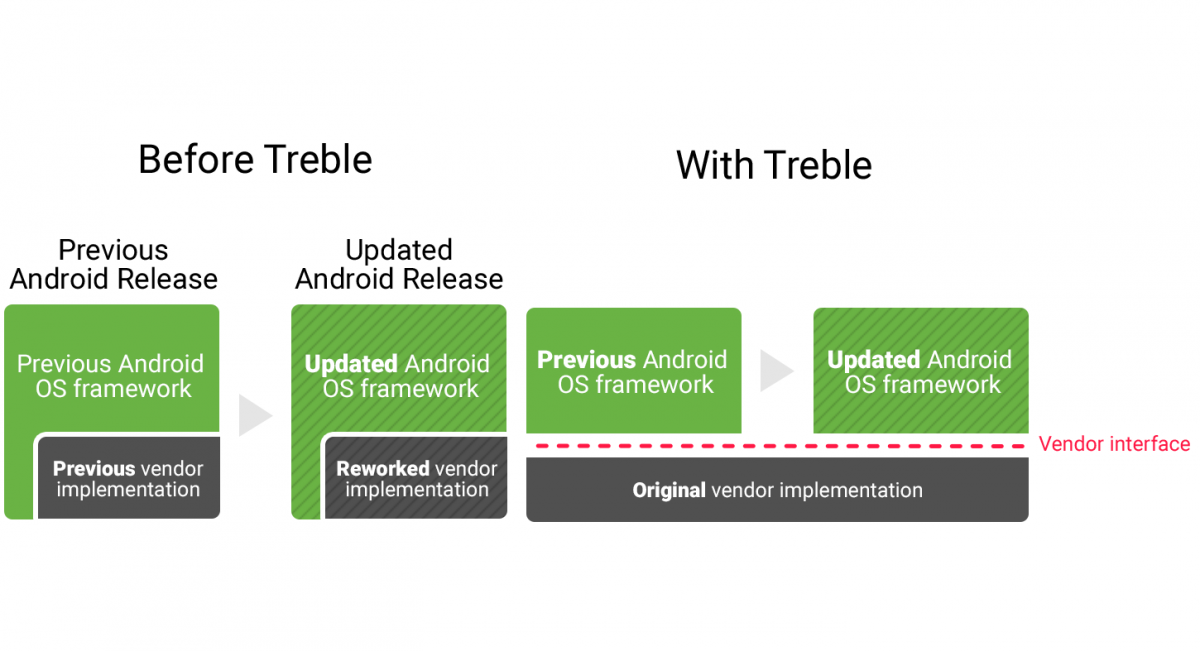
Updates in Android they are constantly presented as a problem. The fragmentation It is one of the most common topics of debate around the Google operating system, and the search engine knows it. Therefore, starting with Android Oreo, Project Treble will try to fix this problem.
This is how the system worked
In his day we tell you how manufacturers prepare to update their devices to new versions of Android. It is a process that consists of eleven steps and that requires continuous supervision from receiving the new tools to offering them to the public.

The main problem with this process is that companies always had to adapt to what Google was offering. This meant that, with each new version, the particularities of each layer of customization had to be adapted, something that was completely refined once it reached users.
This was one of the main points that explained the delay in getting devices updated, and what explains that, for example, Nokia is staggering the update to Oreo between the Nokia 8, the Nokia 6 and the Nokia 5.
Project Treble: changing the upgrade system
Starting with Android Oreo, Google has decided to implement Project Treble, a new process that modularizes Android updates and promises to simplify implementation. You should also open the range of devices that receive updates on a regular basis.
The new process focuses on step 3 of Android updates. Companies like Qualcomm They had to adapt their chips first so that other companies like Sony could upgrade. What Google proposes is that this code from Qualcomm - and other manufacturers - begins to be a separate code. In addition, that code must always follow standards to communicate with Android.
This enables Android chips and custom layers to always work the same way. The rest of Android will be built on that foundation, speeding up the process. Sony, Samsung, Nokia… The companies could work on their own in the new system without having problems because the hardware does not work. You can see it in graphic format in the following image:
Thus, Android is separated into several parts and rough edges are smoothed out to facilitate the arrival of new versions. This is a smart move that allows you to attack the root of one of the biggest problems in the system. In addition, also the ROM community It will benefit from the changes, as shown by the fact of seeing a Huawei Mate 9 with Android Oreo, something that has been achieved in a single day.
The only problem ahead for Project Treble It is in the fact that only the terminals that are launched with Android 8.0 Oreo grassroots are obliged to fully implement it. Those who simply upgrade to Oreo do not have a duty to do so. This could end up causing a gap different from the current one, and that would be resolved in the long term when all the pre-Oreo devices become outdated. The effects of one of the biggest changes applied to Android updates in its entire history remain to be seen.
